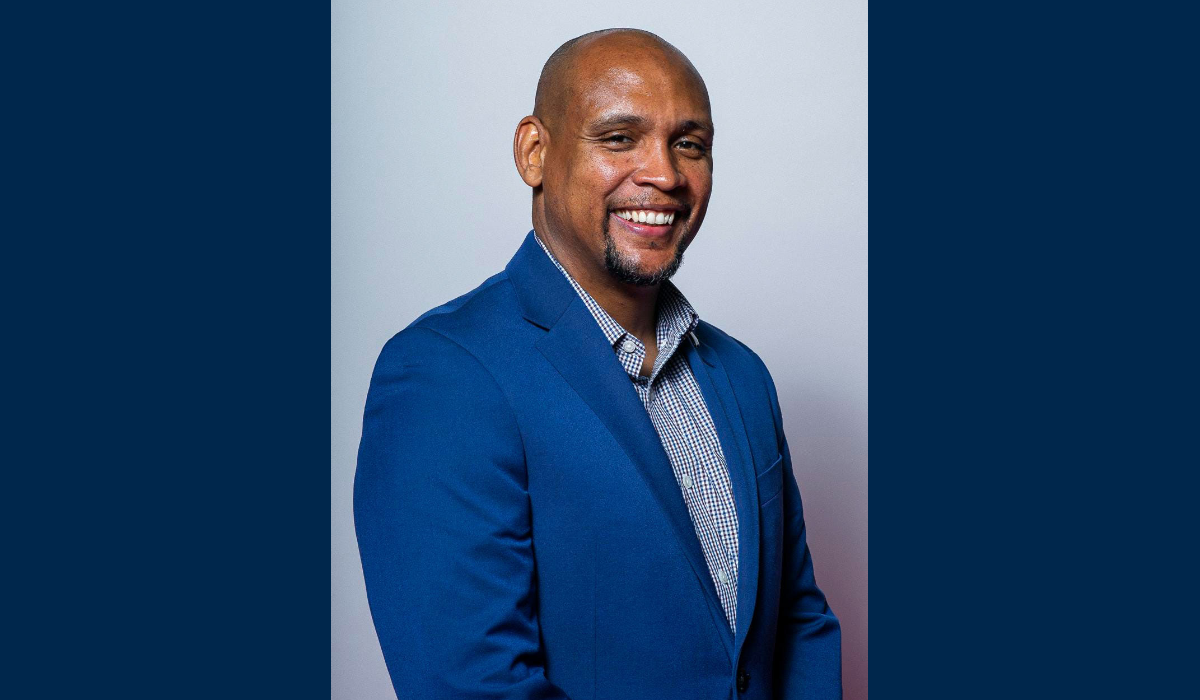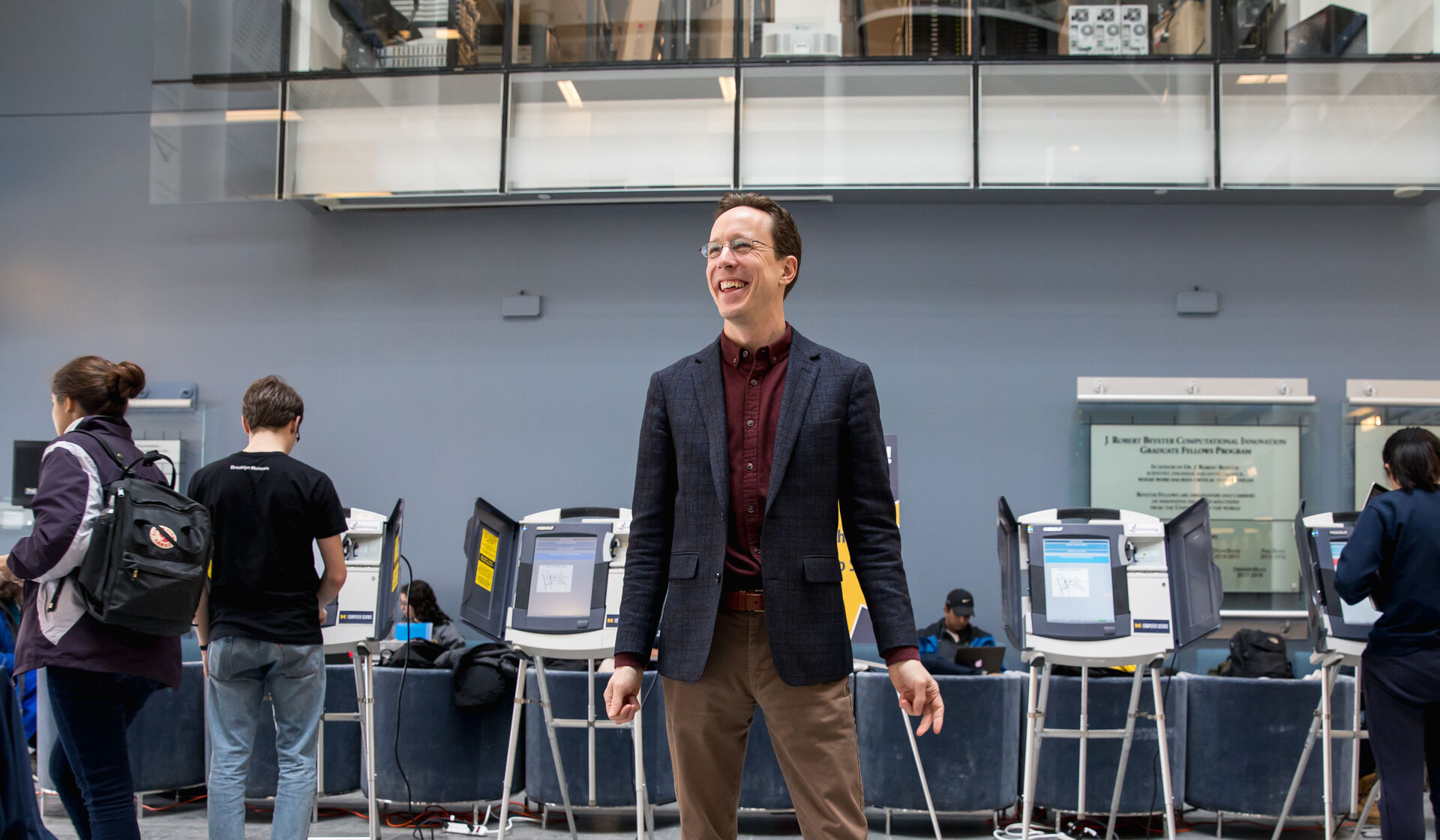Aaron McCloud, MBA’10, MSE’10, hadn’t heard of engineers until he joined the Navy.
McCloud grew up in South Central Los Angeles in the late 1980s and 1990s, a notoriously turbulent time, especially for young Black people. He recalls struggling in high school and graduating with a low GPA.
Feeling overlooked by his teachers, McCloud took the military entrance exam. A Navy recruiter saw his potential and placed him in the Navy Nuclear Power Training Unit in South Carolina, where he would learn how to operate a nuclear propulsion plant. Determined to succeed despite the 50 percent fail rate, McCloud reached out for tutoring assistance and learned how to study while being exposed to engineering roles.
After leaving the Navy in 2002, McCloud earned an undergraduate degree from the University of Southern California, and two graduate degrees from the University of Michigan, both of which opened doors into the energy sector where he found a career with Shell.
McCloud soon realized he was the only Black person on his team and decided to get involved and help recruit more diverse employees, but was told that there wasn’t significant diversity at universities in the degree fields they were trying to recruit. Through Shell’s K-12 initiative program, McCloud began to volunteer to talk to young people and expose them to roles in energy and STEM.
“I would visit schools around Houston. And I realized that the students I met didn’t really know — much like me as a young person, I didn’t know how to get out of poverty, I didn’t know how to get out of low income, I didn’t know how to get out my neighborhood, and they really didn’t have access to what it took to get to obtain the high paying jobs,” he says.
McCloud knew there had to be a better way to expose the students to opportunities than occasional conversations with visiting mentors. He began to formulate the idea that would become Intervene K-12, a company that provides data-driven instruction with online, small-group intervention programs to help K-12 schools improve student outcomes.
“My goal with Intervene [K-12] is to build equity, create equity through education, specifically for the populations that I know best, that I come from: underserved students, students that have also been classified as ‘low performers,’ and are being impacted by these systematic issues,” McCloud says.
With the philosophy that “exposure is the key to growth,” McCloud established a tutoring program that aided students while exposing them to different career fields.
“What Intervene K-12 is really trying to do is help unlock the potential of all these students that are not in those roles right now, that are not in corporate board rooms right now, not in the C-suite, not in the operating room, not working on the ChatGPT. They should be. They have the right and the aptitude and the potential to do it,” he says.
The program currently has about 10,000 tutors supporting 30,000 scholars across six states.
Intervene K-12 tutoring occurs during the school day to subvert systemic barriers like availability of transportation to and from a tutoring location, potential time parents or guardians may have to take off work, the disposable income to pay for a tutor, or even the ability to find quality, affordable tutors in their area.
“Unfortunately, if you look at stats across the United States, a student’s zip code can sometimes be the determining factor to access opportunities. But we know that the zip code really doesn’t determine their potential aptitude, or their intelligence, or anything. So it shouldn’t limit their future,” McCloud says.
Intervene K-12 has two models: support through schools and an after-school program available for parents or guardians to access for their children. Through small-group tutoring, students are exposed to different industries and career opportunities through real-world problems, frequent conversations, and even the tutors themselves — who come from diverse backgrounds across education and corporate business sectors, but are “all a reflection of the students we serve,” says McCloud.
The model is effective — students are seeing an average of 30 percent improvement across assessments and standardized tests. About 79 percent of students that weren’t passing standardized tests now are, and English learners are seeing a one-tier growth in proficiency (based on state standards).
As Intervene K-12 continues to grow, McCloud hopes to bring the resource to Detroit Public Schools, Michigan’s largest public school system. He credits U-M with exposing him to so many different industries, opportunities, and people.
“The diversity at the University of Michigan was what I really appreciated. I remember during the beginning of business school there was an orientation where they pulled together the incoming Black students to meet this cohort of the Black students that were there in the Black Business Association. That was really actually my first time ever being in a room full of Black professionals. It was very, very empowering. To this day, I think about that.”
Katherine Fiorillo is the editor of Michigan Alum.





